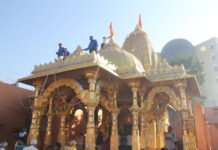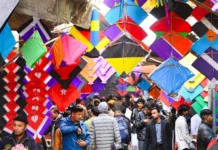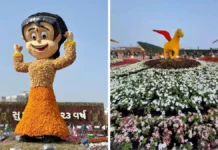NEW DELHI: It was silence that was his means of survival while at school in a small town in western Assam. With no knowledge or understanding of gender or sexuality, words promised no expressions.
But coming to Delhi for his undergraduate studies offered him the space to learn, grow, and find “a room of his own”. Believing that coming out is a process that takes time and safety nets, Rafiul Alom Rahman, founder of ‘The Queer Muslim Project’, which aims to create a more positive conversation around gender, sexuality and faith, most particularly in Islam feels that in no way should it be a norm.
Stressing that the work they do at TQMP aims to create a world that is safe and affirming of people from diverse and inter-sectional backgrounds to live life on their own terms, he smiles, “Today, I am quite amazed to see the progress the queer movement has made in smaller towns and cities in India. Guwahati just had its 8th annual pride walk on March 21. That’s quite a thing.”
Starting as an online initiative in March 2017, with the idea to promote and amplify queer and trans-affirming resources in Islam, soon, the virtual community grew, and people started requesting them for offline meet-ups. In May 2018, together with Aneka Trust in Bengaluru, they organised India’s first ever national consultation on issues faced by LGBTQIA+ Muslims.
Adding that the two important learnings from the consultation were that there are very few spaces for queer Muslims to connect and feel safe, leading to poor mental well-being; and the representation of LGBTQIA+ and Muslim individuals are often coloured by Islamophobic and homophobic ideas, creating a double whammy for those at the intersection of these identities, he says, “This gave us the motivation to work towards positive representation and visibility of LGBTQIA+ Muslims through storytelling, creative workshops and publications, and affirmative art practice. At TQMP, we are not just characters in other people’s stories; we are the agents of our stories.”
Talk to him about how social media, especially Instagram has been a major force for TQMP, Rahman says that they have grown to be one of the largest global online networks of queer, Muslim and allied individuals, with a community of over 26,000 people and counting. “We have also expanded our work beyond social media to launch a first-of-its-kind digital monthly newspaper in March 2021, titled ‘The Queer Muslim’. The newspaper is the culmination of over three years of digital world-building, for us to bring together visual and written storytelling, specifically intended for a queer Muslim audience, but accessible to the world at large.”
Speaking about the experience with British Council, which has partnered with TQMP in India for the seventh edition of ‘Five Films for Freedom’, the world’s largest LGBTIQ+ digital campaign, he says, “They have been a great partner, and our work is rooted in the spirit of collaboration and co-creation. I am personally excited about the curation we have put together for the 2021 edition of the ‘Five Films For Freedom’ programme in India. From community screenings to a digital storytelling workshop to even a podcast, you name it… Even the films – they are so diverse, inter-sectional and nuanced, and represent a variety of cultures and experiences around the world – a respite from the kind of stereotypical portrayals we often see of queer people in mainstream cinema.”
Even as the near future will witness TQMP organise a series of creative workshops and trainings for young queer artists, creators and community organizers, mention that in all the talk about gender, the experiences of the LGBT community is seldom taken into account, and he quotes Audre Lorde: “There is no thing as a single-issue struggle because we do not live single-issue lives.”







